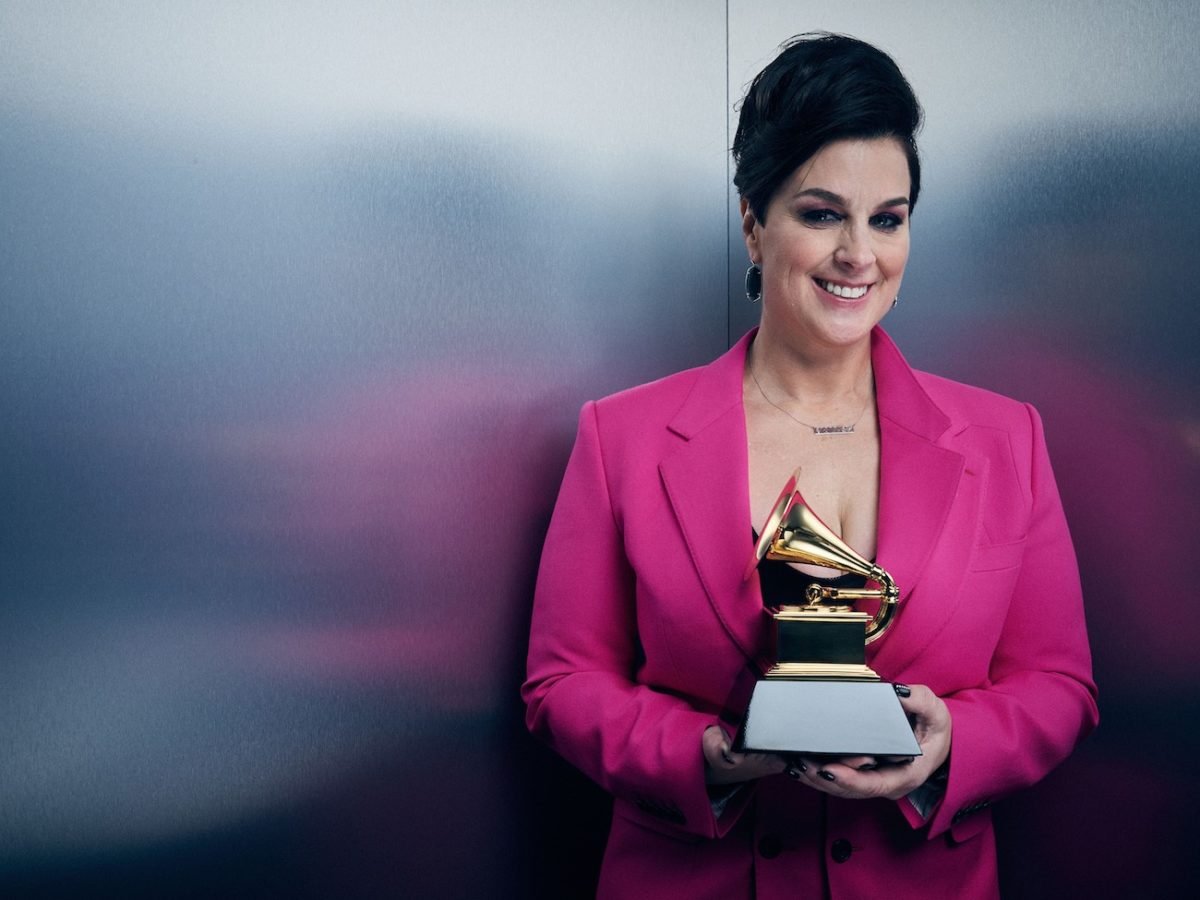Tracy Young broke the glass ceiling twice with her historic Grammy win.
The Miami-based music producer and DJ made history Sunday night as the first woman and first self-identified lesbian to win a Grammy in the best remixed recording, non classical category for her edit of Madonna‘s empowerment anthem “I Rise.” Young also made the history books as the the first woman and first self-identified lesbian to be nominated for a Grammy in the best remixed recording, non classical category.
“I definitely thought I was not going to win. I thought there were other people more deserving,” Young told Q Voice News the day after her win. “I thought I had won, even though I hadn’t won the statue. Just to be recognized among your peers is overwhelming enough. It’s the acknowledgement that means so much. Winning was a bonus.”
Young has remixed 14 Madonna songs since the late 1990s. Young also has worked with a bevy of other pop royalty: Britney Spears, Beyoncé, Stevie Nicks, Idina Menzel, Christina Aguilera, Gloria Estefan, Katy Perry, Demi Lovato, Cher, Shakira, Pink, Rhianna, and Lady Gaga.

Tracy Young poses for a portrait during the 62nd Annual Grammy Awards on January 26, in Los Angeles. Moments earlier, Young made history as the first woman and self-identified lesbian to win to win a Grammy in the best remixed recording, non classical category. (Photo by Robby Klein/Getty Images for The Recording Academy)
Young also has been a staple in the gay dance club and circuit scenes almost two decades, spinning at clubs and parities in Miami and around the county.
In an interview with Q Voice News, Young, talked about breaking the glass ceiling, eating pancakes the day after winning the Grammy, choosing songs to remix.
Here are some excerpts.
The remix
“ ‘I Rise’ wasn’t a single. ‘Crave’ was the single (from Madonna’s “Madame X” CD). But as a DJ, I gravitated toward ‘I Rise’, ” Young says. “I wanted to play it for my audience because the song is so important to the LGBTQ community. I needed a version to play on the dancefloor. Nobody could play it in the clubs in its original form.”
51 years ago Lee Glaze fought police harassment & made gay history
Asking Madonna
“I asked Madonna if I could do it, and she said absolutely,” Young says. “I gave the remix to a couple of friends, and then it kind of took off. I never imagined I would be nominated because there wasn’t that campaign behind it.”
Celebrating her Grammy win
“I had pancakes for breakfast the next day,” Young says. “I hadn’t eaten like that in awhile, some good old-fashioned pancakes. I had them in the hotel. I woke up super early at 6 a.m. because I had an interview, and I couldn’t go back to sleep. I went downstairs and had breakfast. They were yummy.”
Choosing songs to remix
“Most of the time, it’s the lyrical content,” Young says. “Those are the most meaningful, emotional remixes. When the song in its original form resonates to somebody and makes you feel something. If it’s a tempo that’s already danceable, I kind of steer clear from those. I like to remix the ballads. The ones that need the remix.”
Songs in a Tracy Young DJ set
“It depends on the audience I’m playing for. I’m so diverse. In a gay set, I go for the female, diva vocal anthems. That’s what I love,” Young says. “Pink, Demi Lovato mixed in with sexy, deep, hard beats. We all love to be sexy.”
Breaking the glass ceiling
“They wouldn’t hire me at the gay male clubs until I worked with Madonna. People told me flat out, Girls don’t DJ. Choose another job,” Young says. “I’m the type of person, when I get told, No, so much, I continue. I knew one day it would be about the music, and that’s what it turned into.
“It’s all about awareness. They only saw men DJing. When you’re not aware of something, you’re just not aware,” Young says. “When they started seeing me DJ, they were like, Oh. Girls can DJ, too.
“I don’t always think it was a sexist thing or discrimination thing, not necessarily with everybody. It’s definitely an issue,” Young says. “Now you see a lot of women DJs, and it’s normal.
“We don’t see a lot of women in production, in the studio, in remixing. Now maybe the conversation will start turning with that,” Young says. “There’s so much going on in the world. If you don’t think about something, and nobody brings it to your attention, you just don’t think about it.”
Jinx Beers — pioneering feminist, Lesbian News founder — dies at 84
Music was an escape
“Music was an escape in my childhood,” Young says. “I grew up in a divorced household. I had a lot of loss. I grew up with a lot of pain. My parents went through a horrible divorce, and I had to deal with my dad remarrying and my mom remarrying. It was a lot of trauma. Music was an escape and it was constant.
“I had a hard time communicating,” Young says. “That’s how I spoke. It was through music. I’ve learned to be more descriptive.”
What’s next?
I want to win the Grammy again next year,” Young says, chuckling. “I want to do a movie and win an Oscar. All jokes aside. I’m going to start working on original music. I want to create more music rather than DJ. What’s a new challenge for me is making a song from scratch. As an artist, I want to evolve. I’m very excited.”
